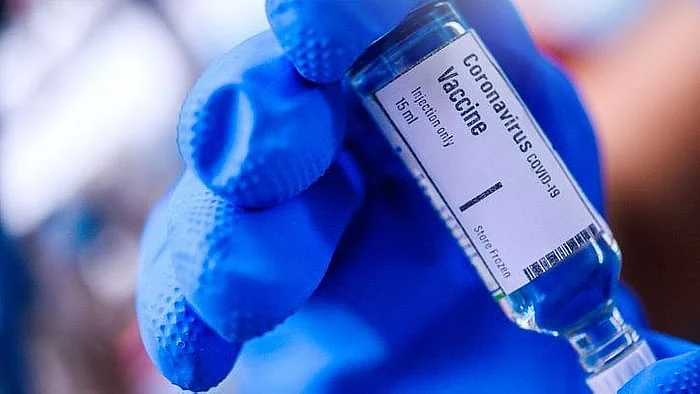Serum Vaccine Gets Expert Panel Nod, Final Call by DCGI: Reports
If this happens, it will be the first novel coronavirus vaccine to get emergency use approval in India.

advertisement
After a day long meeting Friday, 1 January, of an expert panel convened to give emergency approvals to COVID vaccines, several reports indicate the panel has given a conditional nod to Oxford AstraZeneca's vaccine, being manufactured by Serum Institute (SII) in India.
The recommendation now goes to the regulator Drugs Controller General of India (DCGI), which will give the final approval.
If this happens, it will be the first novel coronavirus vaccine to get emergency use approval in India. India will also become the second country to approve the Oxford vaccine after the UK.
The Subject Expert Committee (SEC) in the Central Drugs Standard Control Organisation (CDSCO) met on the Emergency Use Authorisation (EUA) request of coronavirus vaccines by SII and Bharat Biotech. Pfizer and BioNTech had requested for more time to produce data and their application wasn't considered on Friday.
According to reports, Bharat Biotech was asked to speed up recruitment for its phase 3 clinical trials.
Conditional Nod
The expert panel is believed to have recommended that the dose be administered in two doses at a gap of 4 to 6 weeks. It's not clear yet what dosage has been given approval. Phase three clinical trial data from the UK and Brazil had thrown up differing efficacies based on dosages given. You can read more about it here.
SII has also been asked to provide more safety and efficacy data from all its global trials.
The meeting of the expert committee comes a day before a dry run for vaccine administration, slated to take place in all states and Union Territories on 2 January.
India’s drug control authority had also hinted on 31 December that a COVID vaccine may be approved soon. Drugs Controller General Dr VG Somani said, “Probably we will have a happy New Year with something in hand. That is what I can hint at,” during a webinar.
During SEC’s second meet on Wednesday, 30 December, further time was requested by Pfizer and “the additional data and information presented by SII and Bharat Biotech Pvt Ltd was perused and analysed by the SEC.”
India is looking to vaccinate nearly 30 crore people in the first phase of the drive, including one crore healthcare workers, two crore frontline and essential workers and 27 crore elderly.
Vaccines in the Running for Emergency Use
News agency IANS had reported that India currently has eight COVID-19 vaccine candidates, including three indigenous vaccines, under different stages of clinical trials, which could be ready for authorisation in the near future.
A version of the Oxford University-AstraZeneca vaccine – already approved for use in UK – is being produced by the SII, it’s called ‘Covishield’ and is “likely to be the first to be rolled out in India,” a source reportedly said on 27 December.
The Oxford vaccine is India’s “best hope” since it’s affordable and easier to store.
NDTV reports that though the Indian government is yet to sign a purchase agreement with SII, the company says “it will focus on its home market first, and then exports, mainly to South Asian countries and Africa.”
The third vaccine in the running, Bharat Biotech’s Covaxin, being developed in collaboration with the Indian Council of Medical Research (ICMR), is simultaneously undergoing Phase 3 human trials across 22 sites in India with around 26,000 volunteers.
According to a top official from the company, it will be at least 60 percent effective based on earlier trial results.
Vaccine Roll-Out, Dry Run
On 31 December, the Centre had asked all states and Union territories to gear up for the COVID-19 vaccine roll-out and a dry-run would be conducted countrywide on 2 January.
The objectives of the dry run would be to “assess operational feasibility in the use of Co-WIN application in field environment, test the linkages between planning and implementation and identify the challenges and guide way forward prior to actual implementation,” a press release by the government stated.
The activity will also focus on difficult terrains and regions with poor logistical support.
The dry run in the states of Assam, Andhra Pradesh, Punjab, and Gujarat, was concluded on 29 December with all the partaking states expressing satisfaction regarding the operational approach and the aid of IT platforms to ensure transparency and monitoring of inoculation processes.
(At The Quint, we question everything. Play an active role in shaping our journalism by becoming a member today.)